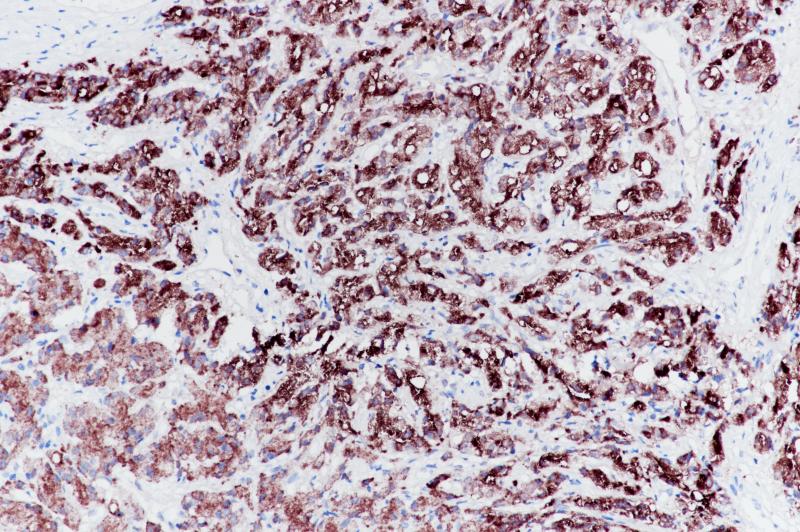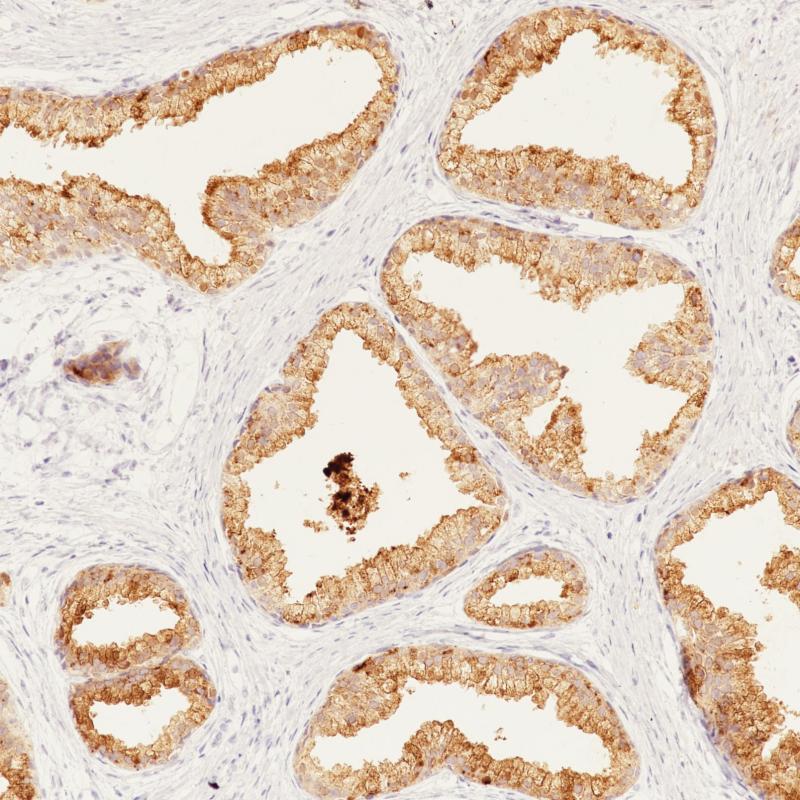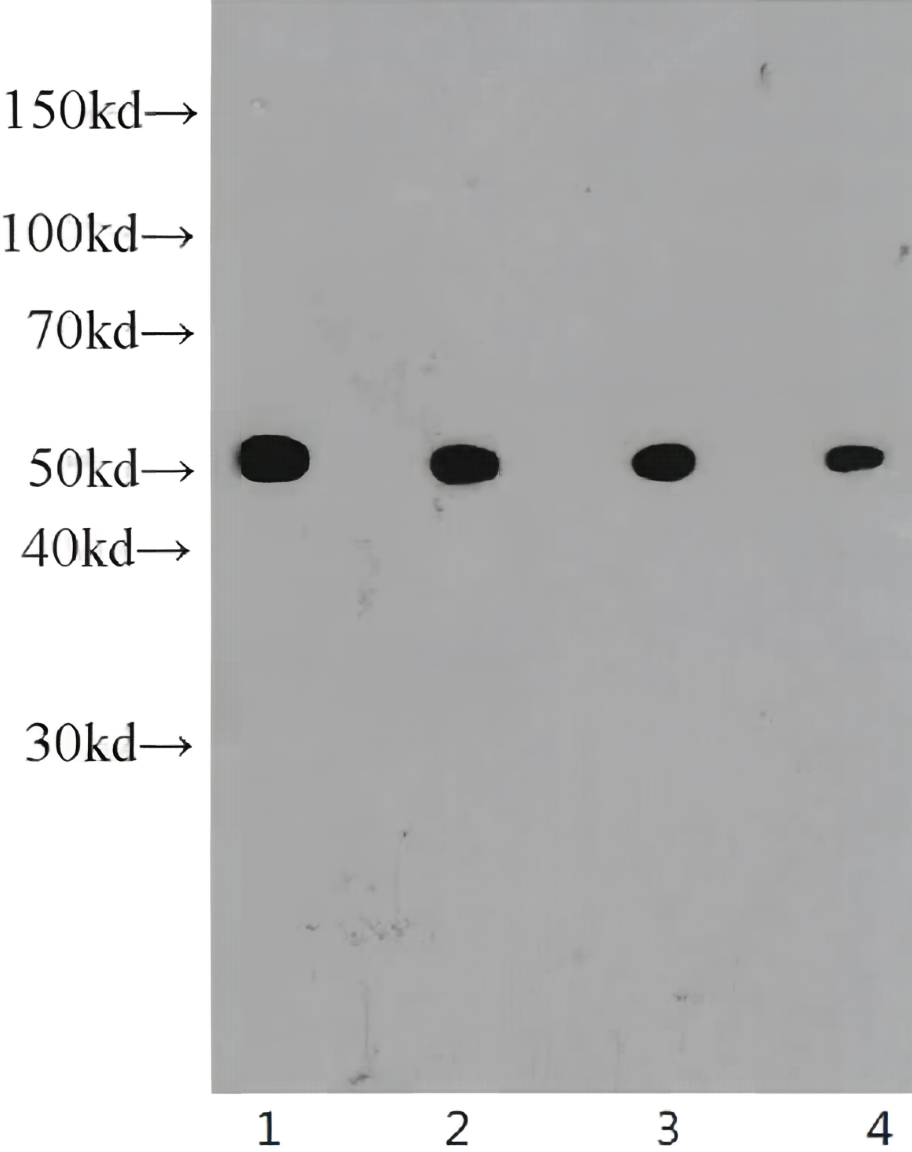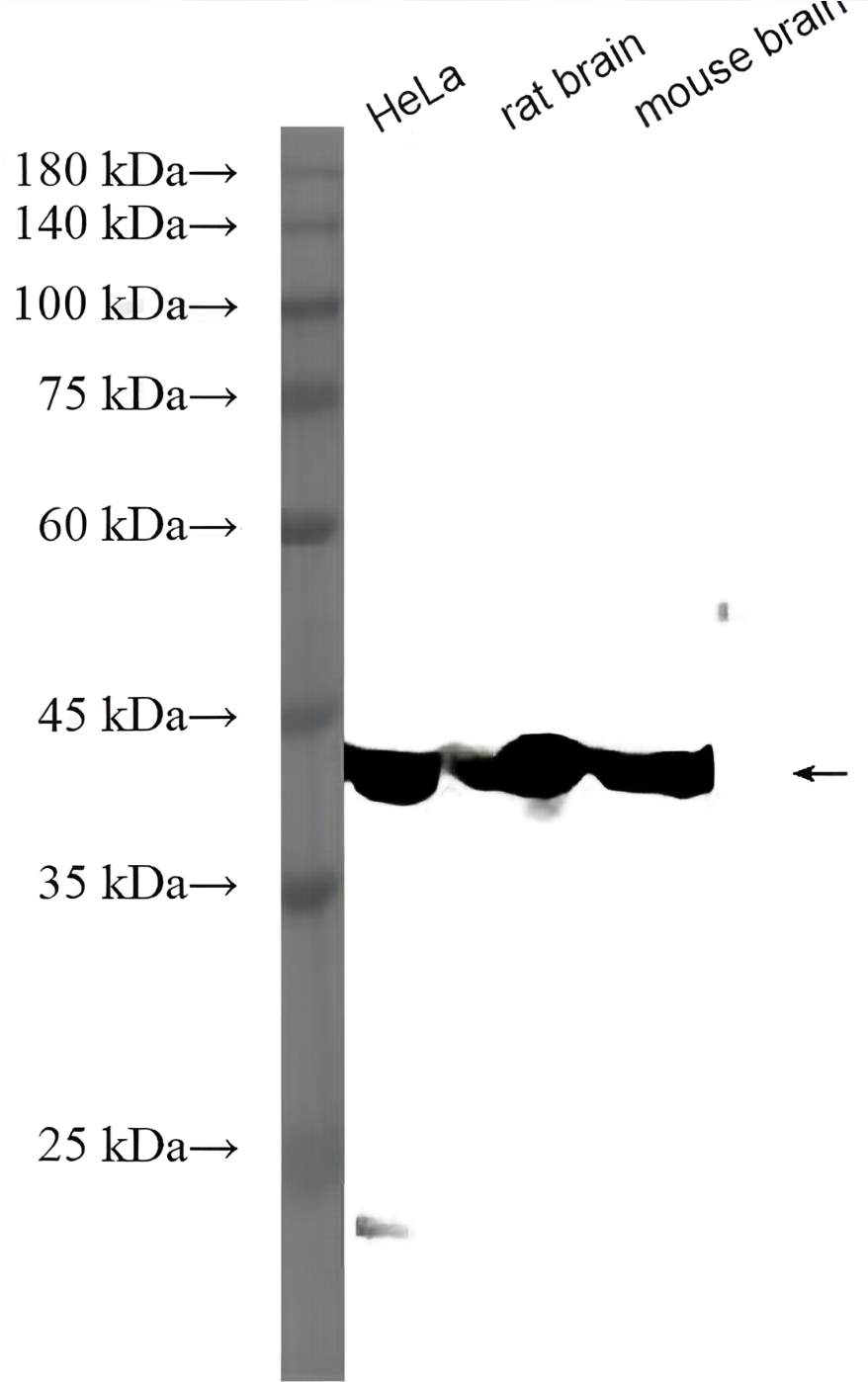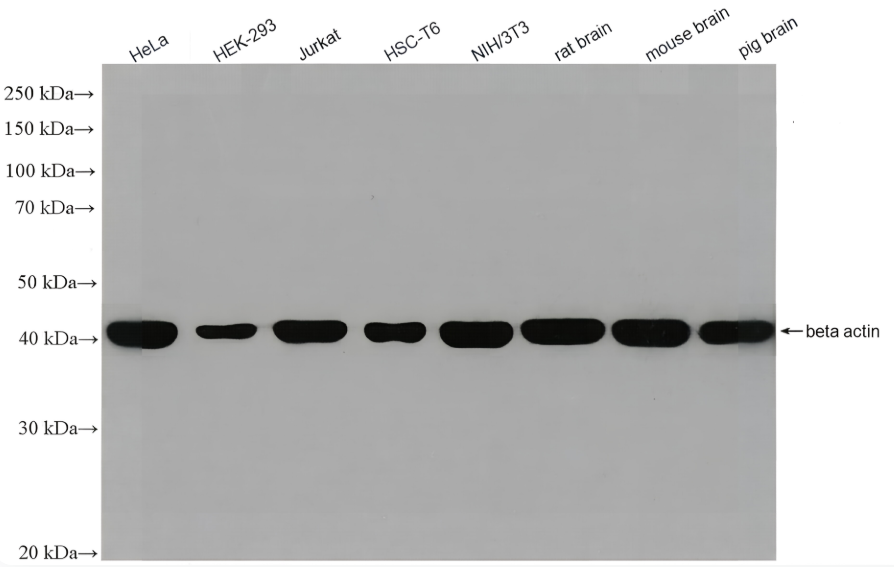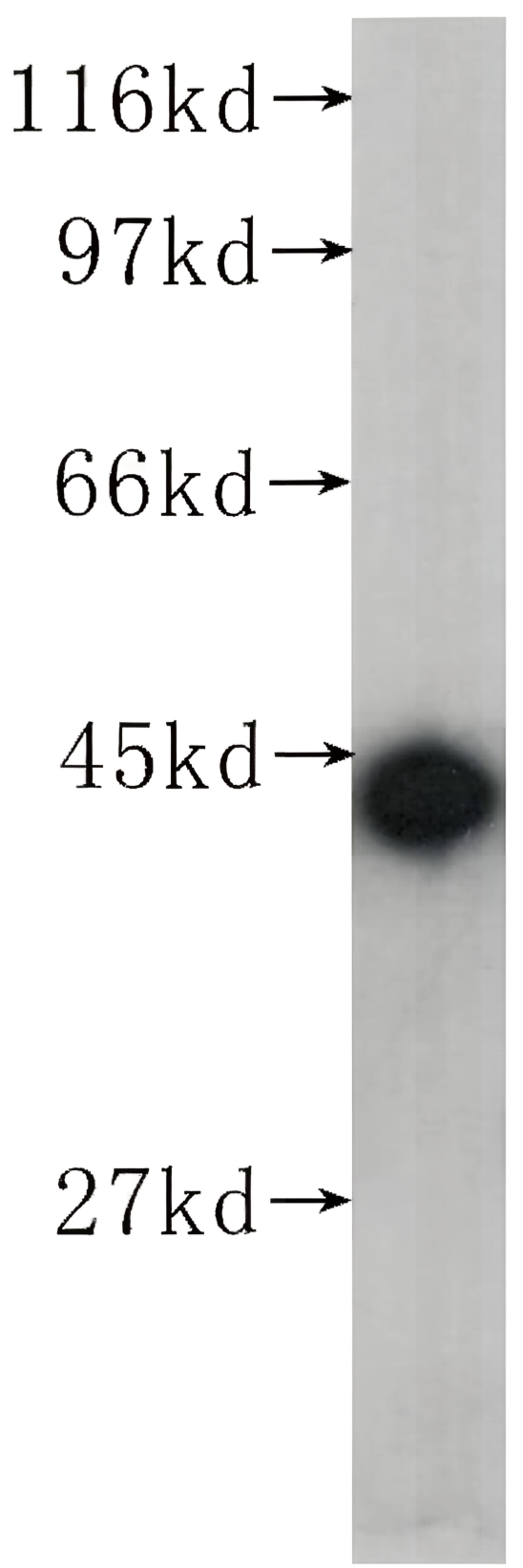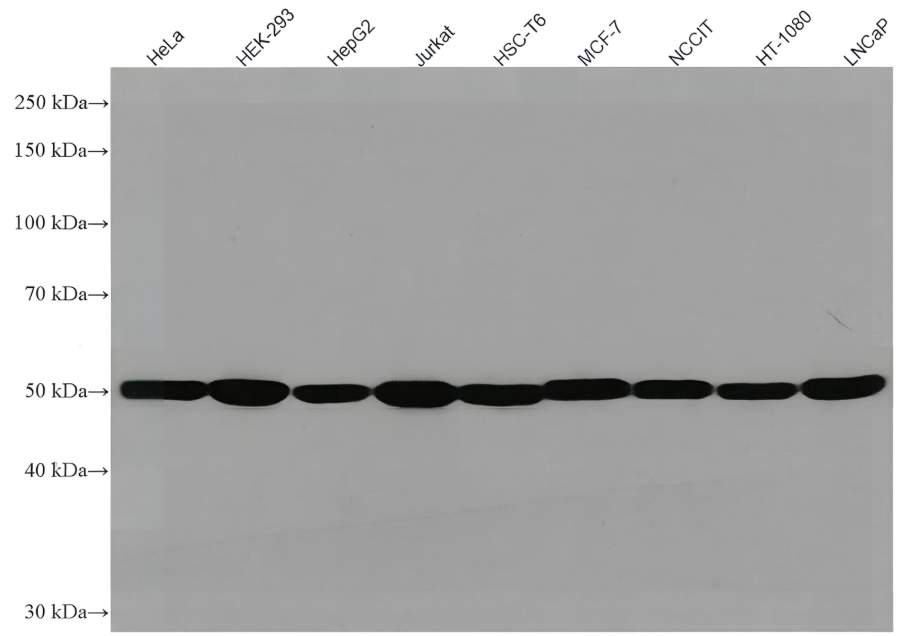PSA Rabbit Monoclonal Antibody(ARB833)
CAT.NO. : ARB6623
RMB Please choose
RMB Please choose
Size:
Trail, Bulk size or Custom requests Please contact us
*产品价格可能会有所调整,请以品牌方官网实时更新的价格为准,以确保准确性。
Background
Prostate-specific antigen (PSA) is a single-chain glycoprotein of 237 amino acids containing approximately 8% carbohydrate. It is a serine protease produced almost exclusively by prostatic epithelial cells.
Immunohistochemically PSA is expressed in the highly specialized apically-superficial layer of female and male secretory cells of the prostate gland, and is readily demonstrated in adenocarcinomas of the prostate in about 99% of the cases. There is a correlation between malignancy grade and intensity of staining, high grade carcinomas displaying weaker expression. About 1% of poorly differentiated carcinomas have been negative for PSA.
Due to the high specificity of PSA for prostatic glandular epithelium, it is very useful in identifying prostatic carcinoma in the prostate and in the adjacent organs often affected by epithelial malignancies, i.e. rectum and urinary bladder. PSA may be used in a panel together with NKX3.1 and Prostein, which are at least as sensitive and slightly more specific than PSA.
Immunohistochemically PSA is expressed in the highly specialized apically-superficial layer of female and male secretory cells of the prostate gland, and is readily demonstrated in adenocarcinomas of the prostate in about 99% of the cases. There is a correlation between malignancy grade and intensity of staining, high grade carcinomas displaying weaker expression. About 1% of poorly differentiated carcinomas have been negative for PSA.
Due to the high specificity of PSA for prostatic glandular epithelium, it is very useful in identifying prostatic carcinoma in the prostate and in the adjacent organs often affected by epithelial malignancies, i.e. rectum and urinary bladder. PSA may be used in a panel together with NKX3.1 and Prostein, which are at least as sensitive and slightly more specific than PSA.
Overview
| Target | PSA |
| Host Species | rabbit monoclonal antibody |
| Molecular Weight | 29 kDa |
| Purity | ProA affinity purified IgG |
| Species Cross-reactivity | Human |
| Form | Liquid |
| Applications | IHC-P |
| Swissprot ID | P07288 |
| Immunogen | Synthetic peptide corresponding to PSA residues within aa150-250 of PSA |
| Storage Buffer | PBS 59%, Sodium azide 0.01%, Glycerol 40%, BSA 0.05% |
| Storage Conditions | -25°C to -18°C |
| Dilutions | IHC-P: 1:100-1:200 |
| Subcellular Location | Secreted |
| Recommended Method | Heat induced epitope retrieval with Tris-EDTA buffer (pH 9.0), primary antibody incubate at RT (18° C-25°C) for 30 minutes |
Data
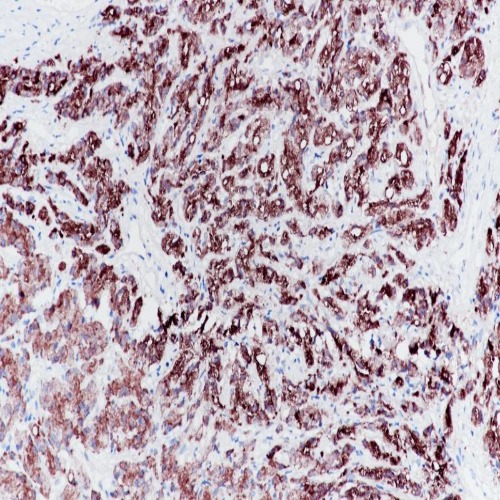
Immunohistochemical staining of human prostatic adenocarcinoma tissue sections was performed using PSA Rabbit Monoclonal Antibody (ARB833).
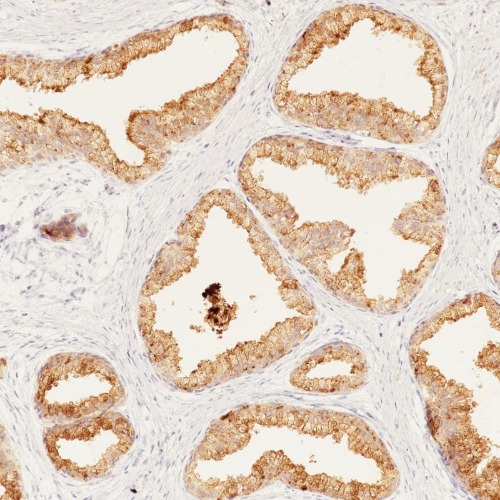
Immunohistochemical staining of human prostatic tissue sections was performed using PSA Rabbit Monoclonal Antibody (ARB833).
Storage
Store at 4°C short term. For long term storage, store at -20°C, avoiding freeze/thaw cycles.
Research Use Only
For Research Use Only. Not for use in diagnostic procedures.
 New Products
New Products




